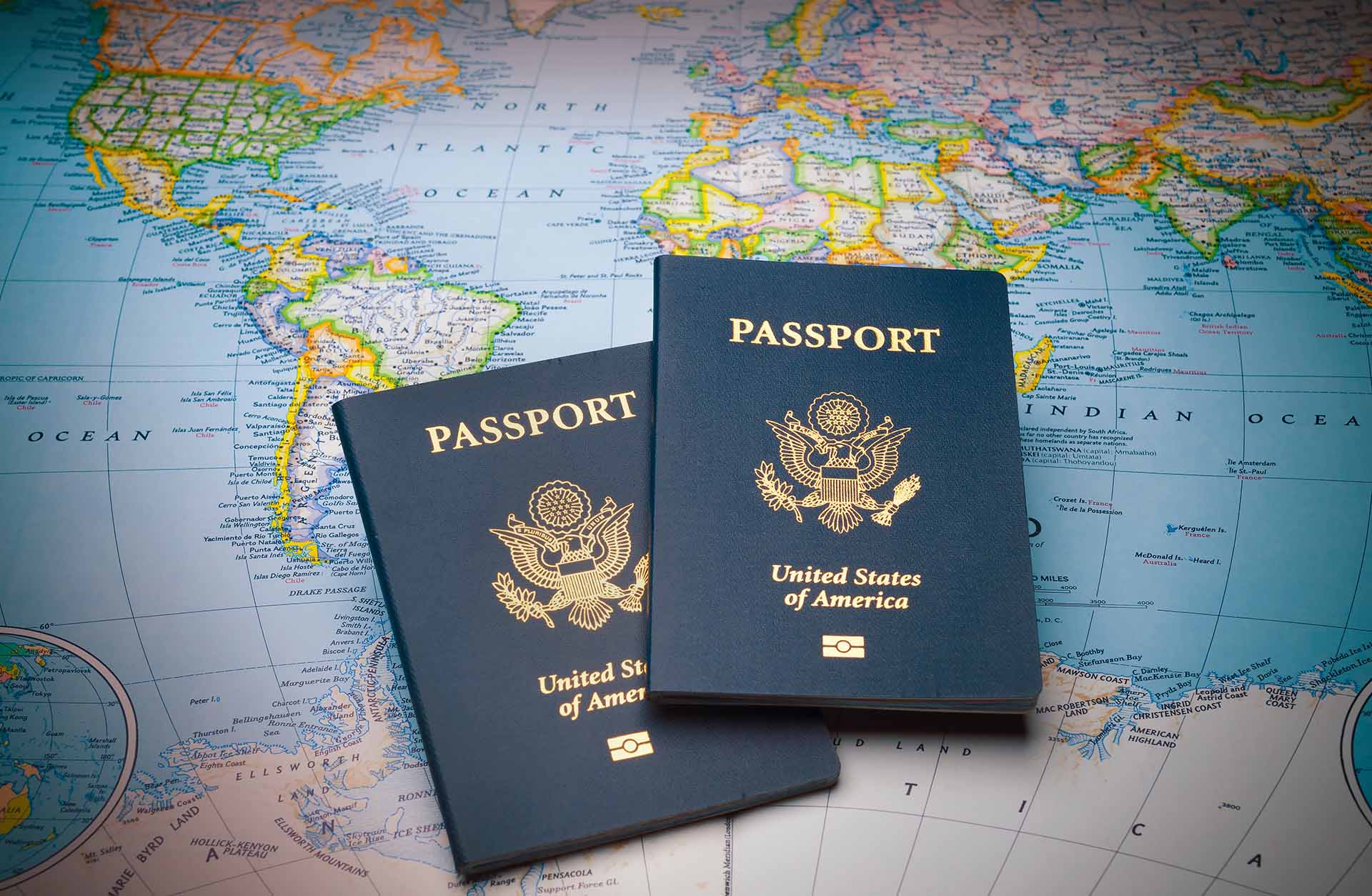Are you considering moving to Malta? It’s a great place to live, with plenty of things to do and beautiful scenery. But before you make a move, there are a few things you need to know. In this blog post, we’ll take a look at some of the things every American should know before moving overseas. Keep reading for more information!

What Are Some Basic Facts You Should Know Before Moving Abroad
Before hiring an international moving company and shipping overseas all of your stuff, you should learn a thing or two about the country you’ll soon call home. Relocating to Malta (MT) will put you in a completely new environment, so to adjust faster, check out some basic info about the nation:
- Its total size is just 121 square miles,
- Population over 516,000,
- The official currency is the Euro (previously it was the Maltese lira),
- The capital is Valletta.
Is Immigration to Malta Easy? What Kind of Documents Should You Prepare?
Moving to Malta from the US starts by gathering all the necessary documents to travel abroad. Remember, there are several legal requirements for Americans relocating internationally to MT. These include obtaining a residency permit, registering for taxation purposes, and opening a bank account.
In addition, since there are many different jobs in Europe for Americans, especially in MT, you should comply with the country’s employment laws if relocating for work. Requirements may vary depending on the individual’s situation. That’s why when looking into a work visa in Europe, check with the embassy of Malta exactly what type of documents you should collect.
How Can Americans Get a Residency Permit In MT?
All non-European Union citizens relocating across the world to MT, including Americans, are required to obtain a residency permit. However, unlike other nationalities such as Indians and Filipinos, US citizens do not require a visa for stays under three months. However, if you are planning to make your move overseas a permanent affair, you must apply for a temporary residence permit. This usually takes around five weeks, and individuals must complete the process prior to the move.
There are two types of residency permits – employed and self-employed. A non-EU citizen relocating with an employment contract has no restrictions, provided they apply for a temporary work visa within eight days of arriving in the country. Individuals not receiving a salary from a Maltese company must prove that they have sufficient funds to support themselves for at least a year, as well as medical insurance.
That being said, ensure that one of the questions you ask the employer is about the residency permit. Suppose you will be working for a big international company that has already participated in the process of employee relocation. In that case, they’ll know all the tricks in getting the documents fast.
Should You Register for Taxation Purposes?
American citizens relocating to MT (and all non-Maltese citizens and residents) must register for taxation purposes with the Inland Revenue Department (IRD). This process can take several months, depending on an American’s residency status. Don’t skip this step because it is an essential part of learning how to live in another country.

When It Comes to Cost of Living You’ll Get To Save Up Some Money
No matter if you are relocating for love, in pursuit of knowledge or job opportunities, being in charge of the finances is a must. To know just what to expect when you move to MT, compare the day-to-day costs with the ones in the US.
To make it easy on you, we made a table comparing some of the basic expenses like utilities, transportation, and housing. So check it out, and see how relocating to MT will save you some money.
| Location | Monthly Transportation Pass (Regular Price) | Basic Utilities | Renting One-Bedroom Apartment | Price per Square Feet to Buy Apartment |
|---|---|---|---|---|
| Malta | $30 | $100 | $765 | $260 |
| United States | $65 | $170 | $1,110 | $200 |
There Are Jobs for Every Entry Level
Are you thinking about relocating alone to MT for a job or a career? If so, you must first obtain a residence permit from the Maltese government. MT has plenty of jobs available for all expats, whether you’re looking for entry-level work or a professional career.
Indeed, Malta’s job market is expanding rapidly, and there are thousands of life-changing job opportunities available right now. MT has one of the lowest unemployment rates in the European Union region. As a result, MT is an excellent destination for those looking to jump-start their career, gain industry experience, or increase their savings deposit.
Finding work in MT can be difficult for some newcomers. Unlike in other European countries, the ability of native English speakers is not as advantageous here because the majority of the population speaks excellent English. As a result, in order to stand out and secure a position, you must acquire additional specific skills and professional experience.
Check Out Different Portals When You Start Job Hunting
Living overseas means working there as well. That being said, you might wonder how to get a job in Europe as an American. Luckily, you can do it even before the move. Go online and check some of the most popular websites for job hunting:
- Jobs in Malta – A better-classified job portal for foreigners to find work. You can sign up for the site and submit your resume.
- Malta Park – A good place to start looking for a variety of jobs in MT. (this is a website that can help you find a home as well).
- The Times of Malta – Malta’s best classifieds job portal
- EURES – is the EU’s job and career search website. Here, you can look into work in other EU countries if you, for example, decide to move to Spain or even relocate to the Netherlands after a while.
- Career Jet – is an excellent resource for finding new and entry-level jobs in Malta.
- Learn4Good – is a popular job portal on a variety of levels.

There Is a Private and Public Healthcare System Available to Residents
MT has a universal healthcare system. This means that everyone in the country is entitled to free healthcare. The government funds the system, and everyone who lives in MT must have health insurance. However, even with public care, there are other different types of health insurance in MT – private, state, and church.
The government provides healthcare services through the Malta Health Service (MHS). MHS offers a wide range of services, including primary care, dental care, specialist care, mental health care, and maternity services. The government also funds private healthcare providers. Private healthcare providers also offer a wide range of services, including primary care, dental care, specialist care, mental health care, and maternity services.
Furthermore, church healthcare is provided by church-run hospitals and is available to all as well. People who would prefer not to use the Maltese healthcare system can buy health insurance from a private insurance provider instead.

You’ll Be Settling in a Country With Very Literate People
Adult literacy stands at 99.5 percent in MT. Maltese and English are both used to teach students in primary and secondary school, and both are compulsory subjects. They are also taught in public schools in a balanced manner.
Private schools, as well as most departments at the University of Malta, prefer to teach in English, which limits the capacity and development of the Maltese language. The majority of university courses are taught in English.
Of the total number of students studying a first foreign language at the secondary level, 51% study Italian, and 38% study French. German, Russian, Spanish, Latin, Chinese, and Arabic are also options.
Malta Might Be Small, but It Can Still Offer Different Spots to Newcomers
One of the first things on your moving abroad checklist should be putting a roof over your head. Avoid making a common relocation mistake that people make by waiting for the last minute to start looking into housing options.
You already know that MT is a small island country in the Mediterranean Sea located south of Sicily and east of Tunisia. However, there are plenty of places you can settle in. The diversity of locations is what makes it one of the best countries to live in. To help with the house hunting, we made a short list of the most popular cities for newcomers:
- Valletta is the capital of MT and is home to many historical sites. It is also a popular nightlife spot, making it one of the best places to live abroad if you are looking for a big-city vibe.
- Sliema is a city on the east coast of MT and is home to many restaurants and shops. It is also close to several beaches. It might not be one of the best vegan cities, but restaurants offer plenty of different dishes that will impress even the pickiest eaters.
- St Julian’s is a city on the north coast of Malta and is home to many nightclubs and casinos. It is one of the best cities in Europe if you are looking to have a good time while clubbing and partying.
Check out the video below if you want to see more of Valletta before the move.
Get Ready for Some Warm Mediterranean Weather
Deciding what to pack when relocating abroad can be a long and tedious process. And even if you are using professional packing services, knowing what to bring along is crucial. To avoid taking plenty of unnecessary stuff along, consider the climate of the new country first. This way, not only you’ll lower the cost of international moving services, but you’ll also avoid cluttering the new home.
The climate in MT is typical of the Mediterranean region. The country experiences a lot of sunny days, with a fair amount of rainfall. The temperature is moderate, with average highs of around 30 degrees Celsius in the summertime.
A Maltese summer is usually thought of as being very hot and dry. Rainfall can be scarce during the months of June, July, and August. However, a good amount of rainfall comes in September due to the influence of northern winds.
Winters are mild, with a mix of sunny days and periods of rain. Temperatures hover around an average of 16 degrees Celsius. Snow is almost unheard of, while strong winds are common, especially in winter.

When Moving to Malta You’ll Get To Experience A Variety of Different Cultures
MT is a very diverse country, with a mix of cultures from all over the world. The Maltese people are a melting pot of cultures as well. They have a unique and eclectic vibe that is influenced by all of the different cultures that have come together on the island. That being said, be prepared for a culture shock.
Modern Malta’s culture has been frequently described as a “rich pattern of traditions, beliefs, and practices” that has resulted from a long process of adaptation. It has been subjected to the same complex historical processes that have resulted in the linguistic and ethnic admixture that defines the people of Malta and Gozo today.
Get Ready to Break the Language Barrier
ML has two official languages – Maltese and English. According to a Eurobarometer poll conducted, 98 percent of Maltese people can speak Maltese, 88 percent English, 66 percent Italian, and more than 17 percent French.
This demonstrates a recent increase in language fluency. It also demonstrates an increase in Italian fluency as a result of Italian television broadcasts reaching MT. As you can tell, more people speak English than not, meaning that breaking the language barrier is not a must straight away. However, learning a new language abroad will give you an edge over the competition when it comes to job opportunities.
Check out the video below if you are looking for tips when learning a new language, in this case, Maltese.
Cuisine Brings a Mix of Different Influences
Maltese cuisine is heavily influenced by Sicilian and Italian cuisines, as well as English, Spanish, Maghrebin, and Provençal cuisines. A number of regional variations, particularly in Gozo, can be observed, as well as seasonal variations associated with product availability and Christian feasts (such as Lent, Easter, and Christmas). Food, particularly traditional one, has historically been important in the development of a national identity (the eating of stewed or fried rabbit). Potatoes are also a staple of the Maltese diet.
A number of grapes, including Girgentina and ellewa, are endemic to MT. This ensures that the country has a thriving wine industry, with significant production of wines made from native grapes as well as locally grown grapes of more common varietals like Chardonnay and Syrah. A number of wines have been granted Protected Designation of Origin status, with wines made from grapes grown in Malta and Gozo designated as “DOK” wines.

Moving Internationally Will Be a Start of a Beautiful New Adventure
While there are certainly challenges that come with moving to a new country, the adventure and opportunities available in Malta make it well worth the effort. If you’re considering making a move, be sure to do your research and plan carefully; but once you take the plunge, you’ll find that MT is a wonderful place to call home. So, don’t wait any longer, pack up your bags, and start the new adventure as soon as possible.











